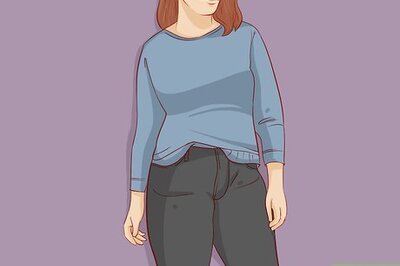
views
The World Health Organisation (WHO) has released the first-ever clinical treatment guidelines, aimed at helping more than 750 million tobacco users around the world to quit the deadly habit. In its tobacco cessation guideline, WHO proposes a comprehensive range of measures, including behavioural support provided by health-care providers, digital cessation interventions and pharmacological treatments. “Over 60% of the world’s 1.25 billion tobacco users – more than 750 million people – wish to quit, yet 70% lack access to effective cessation services,” said the World Health Organisation.
Dr Tedros Adhanom Ghebreyesus, WHO Director-General said in an interview, “This guideline marks a crucial milestone in our global battle against these dangerous products.”
“The immense struggle that people face when trying to quit smoking cannot be overstated. We need to deeply appreciate the strength it takes and the suffering endured by individuals and their loved ones to overcome this addiction,” said Dr Rüdiger Krech, Director of Health Promotion at WHO.
Treatments recommended by the World Health Organisation:
The World Health Organisation recommends varenicline, nicotine replacement therapy (NRT), bupropion and cytisine as effective treatments for people who want to quit smoking.
– Varenicline is a nicotine-free pill. You will need a prescription to buy it. It works in a different way than other smoking cessation drugs. It can be a great drug for those who have not been able to kick the habit of using other drugs before.
– Bupropion is an FDA-approved antidepressant. It is also currently used for smoking cessation. It is a non-nicotine treatment method and helps to curb the habit
– Cytisine has the same molecular structure as nicotine and varenicline. They also have similar pharmacological effects. Cytisine is a partial agonist of nicotinic acetylcholine receptors. It reduces the urge to use tobacco and reduces the severity of nicotine withdrawal symptoms.
In these guidelines, the UN health agency also recommends interventions such as counselling including individual, group, or phone counselling, digital intervention like text messaging, smartphone apps, and internet programmes.




















Comments
0 comment